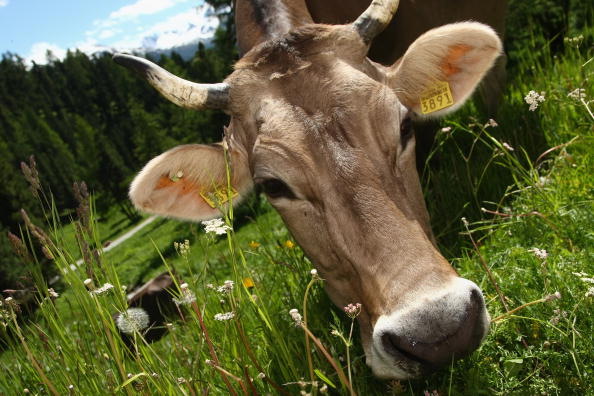Human immune cells grown in cows could produce treatments for lethal epidemics, finds trial
Early trial in humans showed cow-grown immune cells for the Mers virus were safe, and could potentially be developed for other diseases

Your support helps us to tell the story
From reproductive rights to climate change to Big Tech, The Independent is on the ground when the story is developing. Whether it's investigating the financials of Elon Musk's pro-Trump PAC or producing our latest documentary, 'The A Word', which shines a light on the American women fighting for reproductive rights, we know how important it is to parse out the facts from the messaging.
At such a critical moment in US history, we need reporters on the ground. Your donation allows us to keep sending journalists to speak to both sides of the story.
The Independent is trusted by Americans across the entire political spectrum. And unlike many other quality news outlets, we choose not to lock Americans out of our reporting and analysis with paywalls. We believe quality journalism should be available to everyone, paid for by those who can afford it.
Your support makes all the difference.Genetically engineered cows could be farmed for immune cells to treat lethal infectious diseases like Middle East respiratory syndrome (Mers) and other serious epidemics in future.
Researchers have shown for the first time that cows that have had human immune system genes inserted into their DNA can produce virus killing antibodies that can be safely given to humans.
The trial, published in the Lancet Infectious Diseases today, tested the safety of a potential new immunotherapy treatment for the Mers virus, also known as "camel flu", but could be used more widely.
The deadly virus kills one in three people it infects, and was described as a “threat to the entire world” by the World Health Organisation in 2013 when it swept from the Middle East across Europe and the UK.
Antibodies, usually produced by the body in response to infection, were produced in the cows by exposing them to an inert form of the Mers virus, in the same way as a vaccine.
The antibodies were harvested from the cows and purified to produce a booster dose of immune cells to inject into humans and fight off infection.
This could allow for the rapid production of treatments for an already infected patients.
“The process of creating antibody treatments by harvesting antibodies from human donors is slow and often small-scale because the antibodies can only be taken from recently infected or vaccinated individuals,” says lead researcher Dr John Beigel of Leidos Biomedical Research.
“However, the cattle-produced antibodies could be created as soon as three months after an immunogen (a form of the virus that kick-starts antibody production) becomes available.”
This “phase I” clinical trial focused on whether these antibodies could be given safely as a treatment, rather than testing how effective it is as a treatment in patients with the disease.
It studied healthy volunteers, 28 of whom were given the immunotherapy treatment, while 10 received a placebo.
The most common side effects were reported equally across both groups, however participants given the real treatment were slightly more likely to experience fatigue, loose stools and sore throat.
The antibodies stayed in patients’ systems for 90 days, which would be long enough to stamp out the presence of the Mers virus and suggests it could well be a useful treatment in future.
More significantly, the cows here have been given an artificial chromosome, the X and Y-shaped DNA molecules which contain copies of each person’s genetic information, for producing a wide-range of human antibodies.
This could mean in future these “trans-chromosomic cows” can produce treatments to other deadly disease outbreaks; like the Ebola virus, which swept through West Africa in 2014, or the Zika epidemic in Brazil.
Or even common diseases like serious flu outbreaks, which are currently causing deaths and serious winter disruption in the NHS despite national and global vaccination campaigns.
Global pandemics are an increasing health and national security worry as populations are able to move around more easily than ever, meaning disease can be rapidly spread across continents.
Professor Jonathan Ball, professor of molecular virology at the University of Nottingham, who was not involved with the study, said antibody therapies were a mainstay in antivenoms for snake bites, and were increasingly popular in infectious disease treatments.
Using animals makes this “a more rapid process” and could have additional benefits, he said.
“When using a cow you can generate far more antibodies in each animal simply because of their larger size. There could also be an advantage in that if female cows are used, then important infection antibodies can be produced and administered in milk.
“It’s worth emphasising that this study is providing safety data – it is unclear how well this approach will work in treating infection until it progresses down the development pathway.”
Professor David Weiner, of the Wistar Institute, who was also independent of the study, said the cattle alone, which have taken a decade to produce, were a “remarkable feat of genetic engineering”.
He added the Lancet study showed this as an important area for further trials of treatments, in “outbreak situations as well as for protection of at-risk populations".
Join our commenting forum
Join thought-provoking conversations, follow other Independent readers and see their replies
Comments